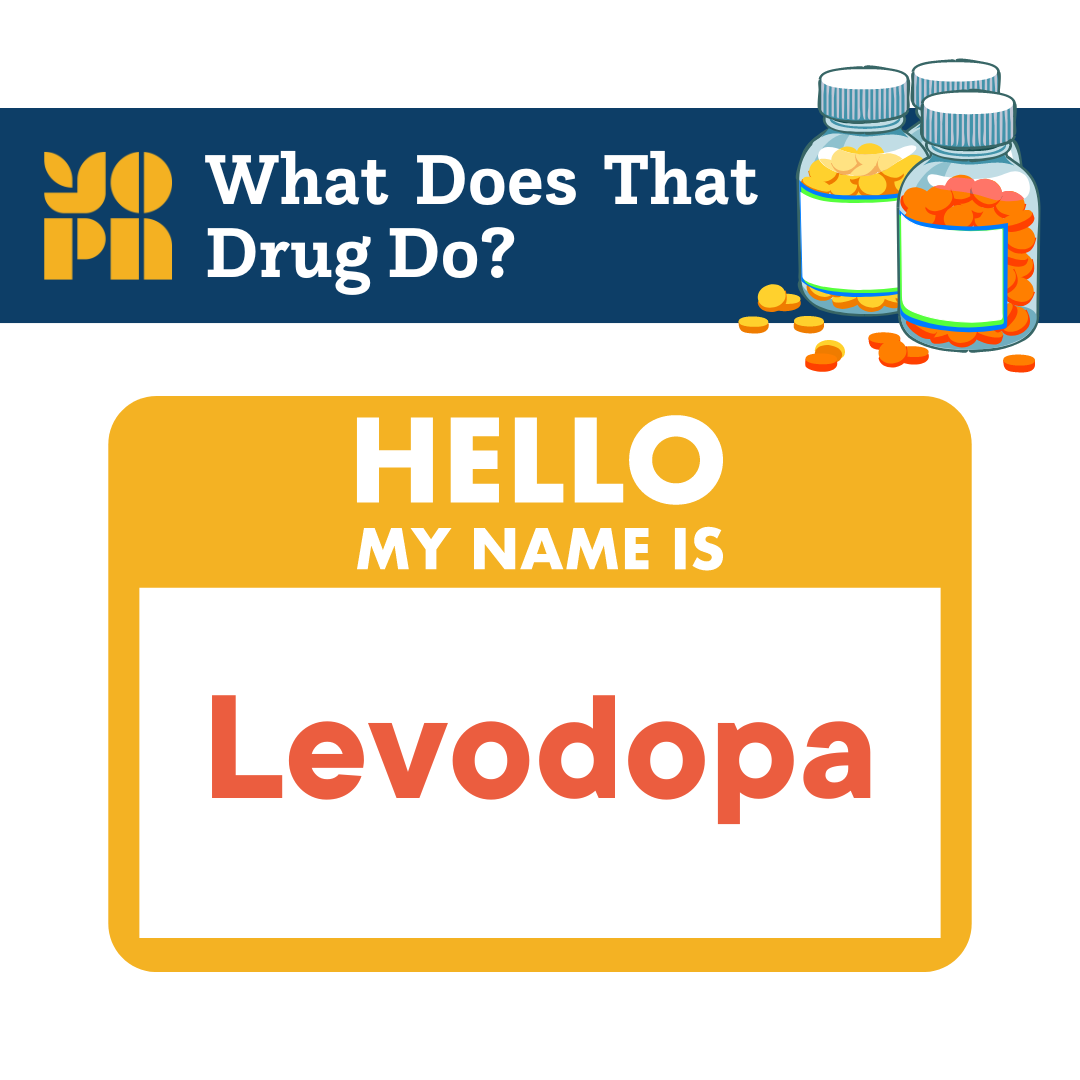PD meds may have complicated names, but we put together a simple breakdown of how some of the most common ones work.
Disclaimer: This post is intended to be strictly informative and is in no way offering medical advice. Talk to your doctor to determine which treatment course is best for you.
Although there is no definitive cure (yet) for Parkinson’s or Young Onset Parkinson's, medical research has progressed leaps and bounds in the past decade to provide us with a wide range of effective treatment options. However, doctors and scientists have a habit of choosing complex, hard-to-pronounce names for the drugs they develop, which can make learning about them more intimidating than necessary. So, we decided to break down how some of the most common ones work to help everyone understand them a bit better:
Amantadine - Originally developed as an antiviral to prevent influenza, Amantadine was found to improve mild Parkinson's symptoms like tremors, akinesia, and rigidity.
Anticholinergics - Anticholinergics may be recommended to younger patients (like those with YOPD) who do not have significant akinesia or trouble walking to reduce bothersome tremor symptoms.
COMT Inhibitors - Catechol-O-methyl transferase (COMT) inhibitors may be used to prolong and enhance the effect of levodopa. They're primarily used for people who experience "wearing off" periods of motor fluctuations at the end of their levodopa dose. They have no beneficial effect when taken alone.
Dopamine Agonists - Dopamine agonists directly stimulate dopamine receptors in the brain. Clinical trials have found them effective for controlling Parkinson's symptoms but can be slightly less effective than levodopa and result in more side effects.
Istradefylline - Istradefylline can be used to treat motor symptoms that can happen when levodopa "wears off" (similar to COMT inhibitors). It was approved for use in the United States in 2019, so more research is needed to fully understand its risks and benefits relative to other medications.
Levodopa - Levodopa is currently the most effective drug for treating Parkinson's symptoms and is particularly effective in treating those with bradykinesia. Tremor and rigidity have also been found to respond to levodopa treatment.
MAO B Inhibitors - Monoamine oxidase type B (MAO B) inhibitors work by blocking the effect of enzymes that inactivate dopamine and can modestly reduce PD symptoms. They also may allow dopamine to remain in the brain for a longer period before being broken down.
Knowledge is power, and learning more about how different drugs work to relieve and treat symptoms can be comforting when you enter the unfamiliar territory of Young Onset Parkinson’s. As stated above, this article is strictly informational and not intended to be taken as medical advice. Talk to a licensed physician to determine what treatment options are best for you or your loved one.

